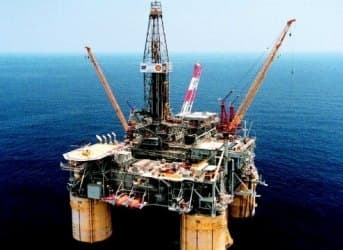Britain and Argentina have been feuding over the sovereignty of the Falkland Islands for 180 years, and 1982 fought a brief but vicious war over them.
Much has changed in the past three decades – Argentina has increasingly lined up fellow Latin American nations to support their claim to Las Malvinas, and in the past two years, intrepid British oil exploration companies have surveyed Falkland waters and found promising signs of hydrocarbon deposits.
Now, an outside player has decided to take the plunge on what might be there under the stormy southern Atlantic waters and invest – India.
Should the on-going Falklands offshore oil exploration prove successful, Argentina’s diplomatic problems may well involve wrangles with one of the BRIC nations, targeted by many economists as the rising fiscal grouping of the 21st century.
India’s Oil and Natural Gas Corp Videsh Ltd. (OVL) is now in talks to buy 25 percent of two exploration blocs in the Falklands’ offshore waters from UK-listed Falkland Oil and Gas Ltd. (FOGL), according to the Falklands newspaper “Penguin News.”
The blocks are located in the south and east Falkland basins in water depths ranging from 1,640 feet to 1.24 miles of water, with resources estimated that of 15 prospects identified, possible reserves of up to 15 billion barrels of oil, according to a source close to the negotiations, speaking on condition of anonymity.
FOGL plans to drill one exploration well (Loligo) in Phase-1 in its Falkland Northern License Area, while in its Falklands Southern License Area, it has committed to drill one well by December 2015.
OVL is a wholly-owned subsidiary of Oil and Natural Gas Corporation Ltd, (ONGC), the flagship national oil company of India, which has operations in several Latin American countries including Brazil, Colombia, Cuba and Venezuela.
The costs are estimated to be $68 million, along with OVL making a cash payment of $40 million.
And if the OVL venture is successful, the company has big plans. If the Loligo well discovers significant natural gas deposits, then OVL is considering constructing a liquefied natural gas (LNG) terminal on the Falklands with an annual capacity of about 7 million tons for exports, while if lesser amounts are found, a floating liquefied natural gas (LNG) storage project would be developed.
Cutting to the chase, OVL’s involvement in exploiting the Falklands’ potential hydrocarbon resources has greatly complicated Argentina’s negotiating position with Britain over the islands, as what was previously a strictly bilateral dispute has now widened to include one of the rising BRIC powers.
So, what is Argentina to do to dissuade India from pursuing its Falklands explorations?
Buenos Aires can hardly play the bilateral trade card. In 2010 bilateral Argentinean-Indian trade reached $2 billion, a near three-fold increase over the 2009 figure of $648 million.
An impressive figure, but a mere drop in the bucket in India’s total 2010 exports of $235 billion for fiscal 2010-11, according to Indian Commerce Secretary Rahul Khullar.
Reacting to the government statistics, Federation of Indian Export Organizations president Ramu S. Deora said that Indian exports were likely to reach the $500 billion-mark by 2014-15, noting, "The economic integration of India with the rest of the world has resulted in such exponential growth in India's exports."
A situation that hardly leaves Argentina with much threat power in New Delhi over the potential loss of its markets.
ADVERTISEMENT
That said, according to Argentinean Minister of Industry Debora Giorgi, India is the second largest Asian investor in Argentina, after China, with 13 companies in the country that have invested $1.1 billion and generated some 9,000 jobs.
But, Indian-British trade is another matter – in 2011, bilateral Indian-British trade exceeded $21 billion, more than ten times India’s trade with Argentina.
As Argentina considers this latest affront to its sovereignty, it would seem that Delhi’s markets have apparently spoken.
Rubbing historical salt in the wound, in 1986 India bought the British aircraft carrier HMS Hermes, Britain's flagship during the 1982 Falklands War with Argentina, for roughly $90 million. Argentina can only hope that the former HMS Hermes, rechristened INS Viraat, won’t yet appear again in Argentinean waters to enforce OVL’s contracts.
By. John C.K. Daly of Oilprice.com


















The Falklands as a legal entity existed 50 years (from 1765) before Argentina (1816) was created.